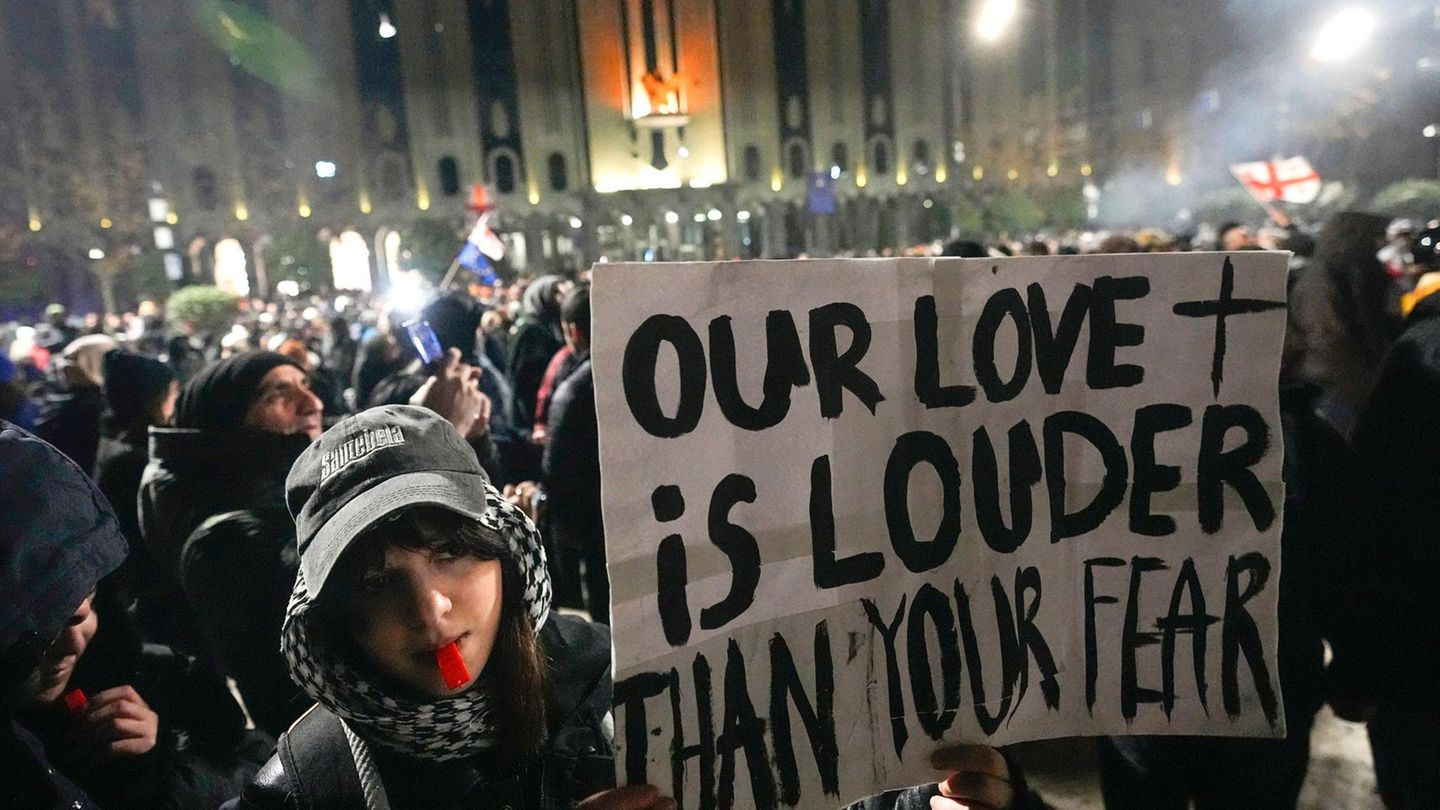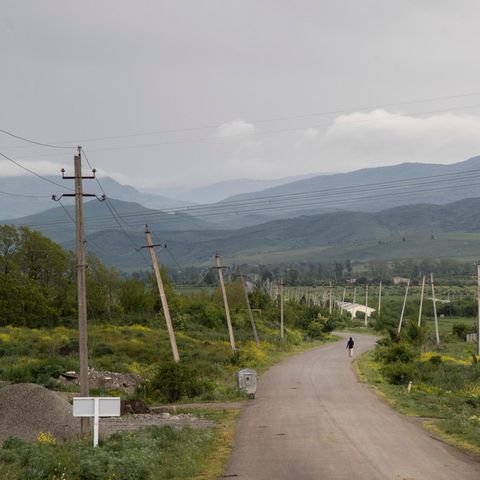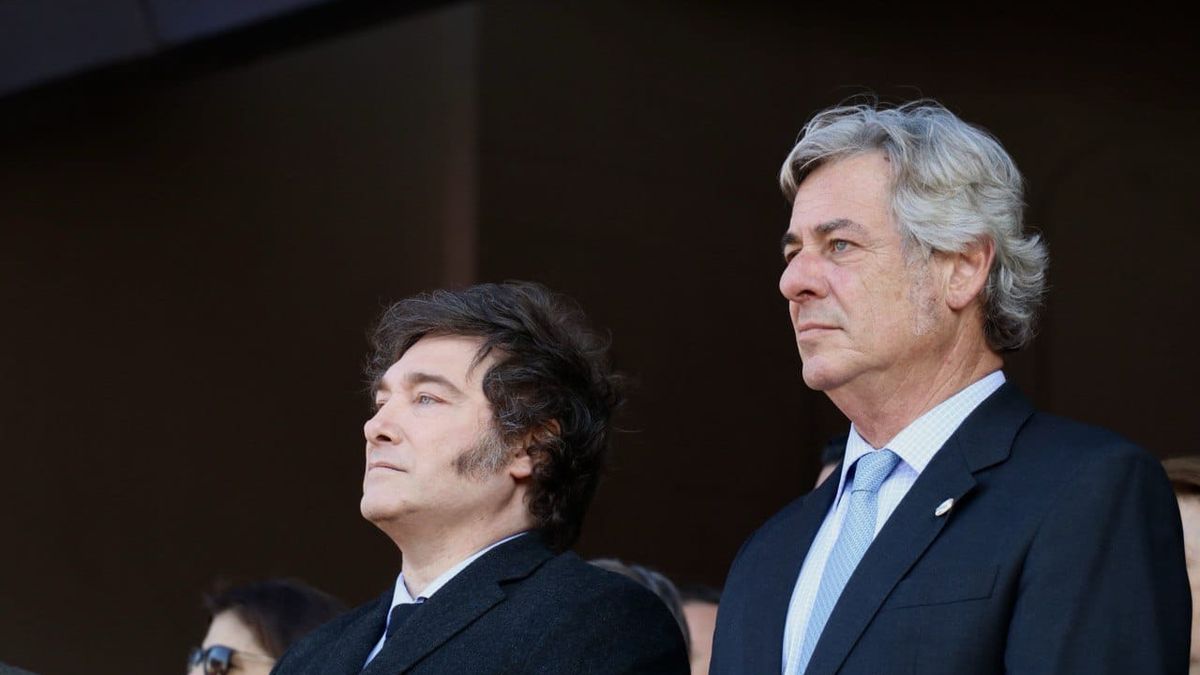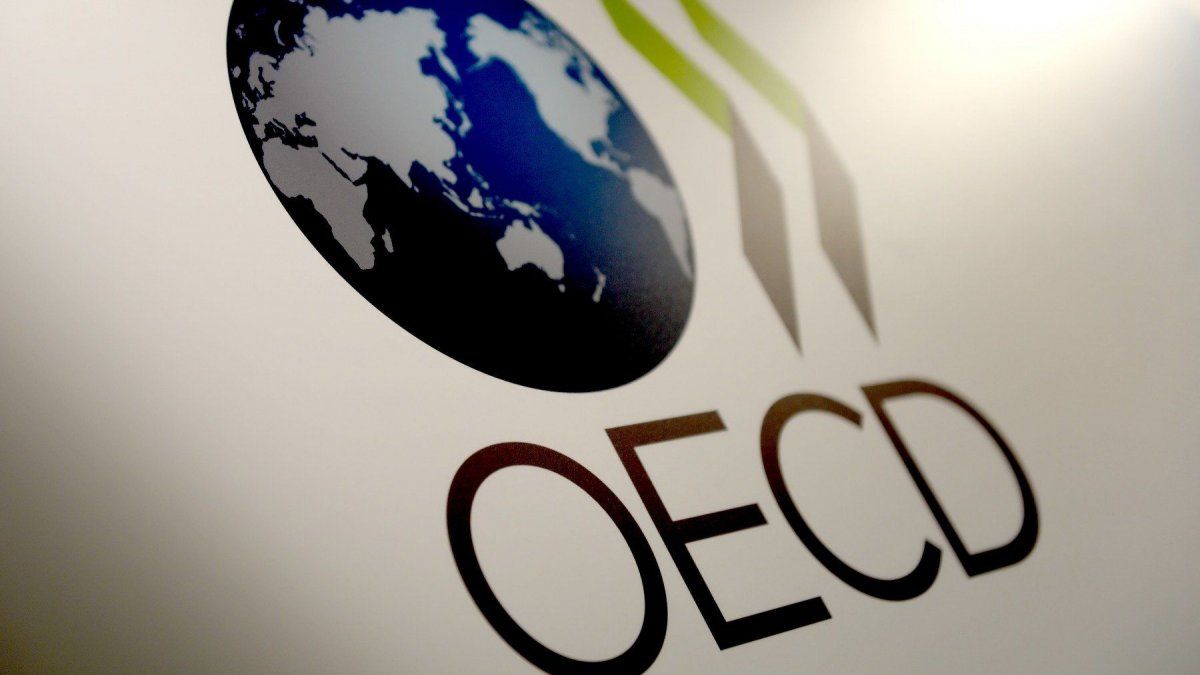Opinion
Why Europe can’t just be on the side of the demonstrators in Georgia
Copy the current link
After controversial elections, Georgia’s parliament is now voting on a new president. The situation threatens to escalate further. But the EU must show tact.
The Caucasus Republic of Georgia is a country in which the goal of joining the EU is not only enshrined in the constitution, but in which a large majority of 80 percent of people have been in favor of it for years: young Georgians in particular are orienting themselves towards the EU. They study in Prague, they fly to Berlin for parties, they work in Paris. The EU visa exemption, which has been in effect since 2017, makes this possible for the approximately 3.6 million Georgians.
With the decision at the end of December to pause accession negotiations with the EU until 2028, the government spat in the faces of all these people. And they spat back: For two weeks, tens of thousands of them have been taking to the streets in Tbilisi and other cities in the country. Several hundred people were arrested by the police during these demonstrations and dozens were injured, some seriously.
Georgia is sliding into a serious national crisis
They are demanding sanctions from the West, especially the EU, against the government – which, according to them, is acting on behalf of Russia and is already illegitimate: the ruling party won the parliamentary elections at the end of October “Georgian dream” 54 percent, but an OSCE observation mission clearly criticized the choice. From the perspective of the demonstrators, the election was stolen, which is why the opposition did not fill their seats in parliament. The country’s president, Salome Sourabishvili, also does not recognize parliament and the government. She wants to stay in office, regardless of the fact that it is dominated by the government “National Assembly” will now elect a new president on Saturday. Georgia is sliding into a serious national crisis.
Meanwhile, the EU is in a bind: Should it follow the opposition’s interpretation and sanction the Georgian administration, especially the billionaire Bidzina Ivanishvili, who controls the ruling party?
Several Baltic countries and Ukraine have imposed such sanctions. But the rest of the EU has so far held back. The most important reason for this is that people in Paris and Berlin want to prevent the Georgian government from actually turning away from the EU. This is also related to geopolitics: Georgia borders Russia to the north and Armenia to the south, which has tried to move closer to the West in recent years. Important oil and gas pipelines run from Azerbaijan to Europe via Georgian territory. Despite the widespread enthusiasm for Europe in Georgia, the West sees the danger that, in the worst case scenario, Russia will take command in Georgia – or at least be able to significantly increase its influence again.
Georgia is not the only country that has tried to balance between the West and Russia in recent years: Serbia, for example, is courted by the EU but maintains its special relations with Russia. Central Asian ex-Soviet republics such as Kazakhstan and Uzbekistan are trying to become more independent of Russia with the help of the West (and China) – but without completely turning away from Russia, not least for economic reasons. This requires tact from the West and especially from the Europeans.
The government has set a trap for the EU
With his aggressive propaganda he has “Georgian dream” also set a trap for the EU. the tone was set: by one “global war party” He spoke in the form of NATO and the EU, the one in Georgia “second front” wanted to open against Russia. Georgian non-governmental organizations and the opposition are only vicarious agents of these forces. “They have no fatherland; they do not love their country and their people because they do not consider it truly their own”said Ivanishvili at the time. He described the opposition as “damn criminals”the Western politicians with “teeth and claws” would have defended.
the one from the “heroic” was averted by security forces. A too clear partisanship of the West would fit perfectly into this picture of reality conveyed by the government: You see, the West is supporting its henchmen to plunge our country into chaos – and into a war with Russia. This fear-mongering certainly finds fertile ground in Georgia, especially since the beginning of the Ukraine war:
The EU would therefore do well to act as a mediator in the conflict and not fall into the trap set by Ivanishvili. Instead of derailing the conflict, an EU-organized round table would be an option where the government and opposition could negotiate a compromise formula for new elections under different conditions. That had already worked after the last parliamentary election. It is doubtful that Ivanishvili actually wants to turn his back on the EU, as the opposition claims: despite all the campaign noise in his speech, he promised his voters in the spring that Georgia would be brought into the EU by 2030.
Source: Stern
I have been working in the news industry for over 6 years, first as a reporter and now as an editor. I have covered politics extensively, and my work has appeared in major newspapers and online news outlets around the world. In addition to my writing, I also contribute regularly to 24 Hours World.





